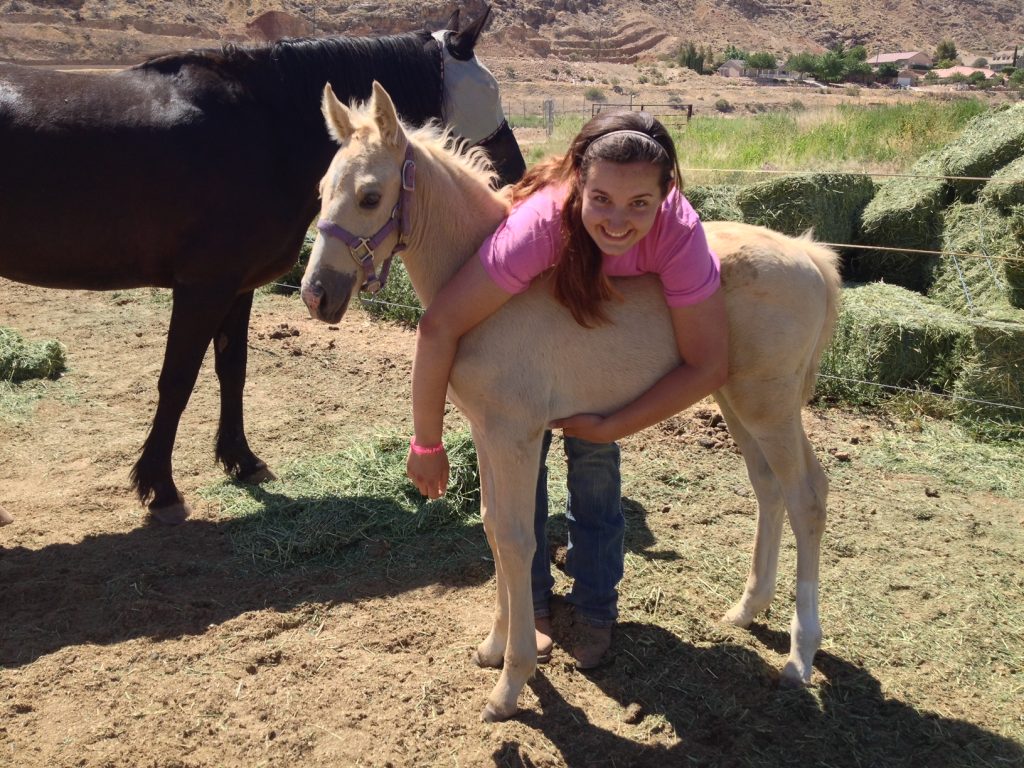Training Your Foal Will Receive at Zion’s Gait Curlies
We want the best possible start in life for every foal born at our farm. Each foal needs the respect, guidance and proper training they deserve to be a well-respected part of equine and human society. The more they know, the better chances they have at living a long, full and happy life. At Zion’s Gait Curlies, we use Clinton Anderson techniques in training all foals. Here are some fundamental aspects of our training program your foal will receive before they come home to you.
- Leading: Teach the foal to lead politely, walk beside you, stop, and follow your cues.
- Tying: Teach them to tie calmly and accept being secured in place.
- Desensitization: Introduce them to various stimuli and objects to reduce fear reactions.
- Hoof Handling: Teach them to pick up their feet for cleaning and farrier work.
- Grooming: Get them used to being groomed and handled all over their body.
- Yielding Hindquarters: Teach them to move their hindquarters away from pressure.
- Yielding Forequarters: Teach them to move their front end away from pressure.
- Backing Up: Train them to back up when asked.
- Lunging: Introduce them to lunging on a line, which can help with exercise and discipline.
- Trailer Loading: Teach them to load calmly into a trailer.
- Desensitize to Noise: Expose them to various sounds, including machinery and traffic.
- Desensitize to Visual Stimuli: Gradually introduce them to objects, flags, and other visual distractions.
- Desensitize to Touch: Make them comfortable with being touched all over their body.
- Basic Ground Manners: Establish good ground manners, including respecting your personal space.
- Desensitize to Pressure and Release: Train them to respond to pressure cues and release when they respond correctly.
Remember that consistency, patience, and positive reinforcement are key components of successful horse training. Always prioritize safety for both yourself and the foal or weanling, and adapt your training methods to the individual horse’s temperament and learning pace. If you’re specifically interested in Clinton Anderson’s program, consider seeking out his instructional materials or a certified instructor to learn more about his approach and techniques. We hope than once your foal arrives at your home, you will further their training or seek the help of a trainer to further their education so they will become the riding horse of your dreams!
